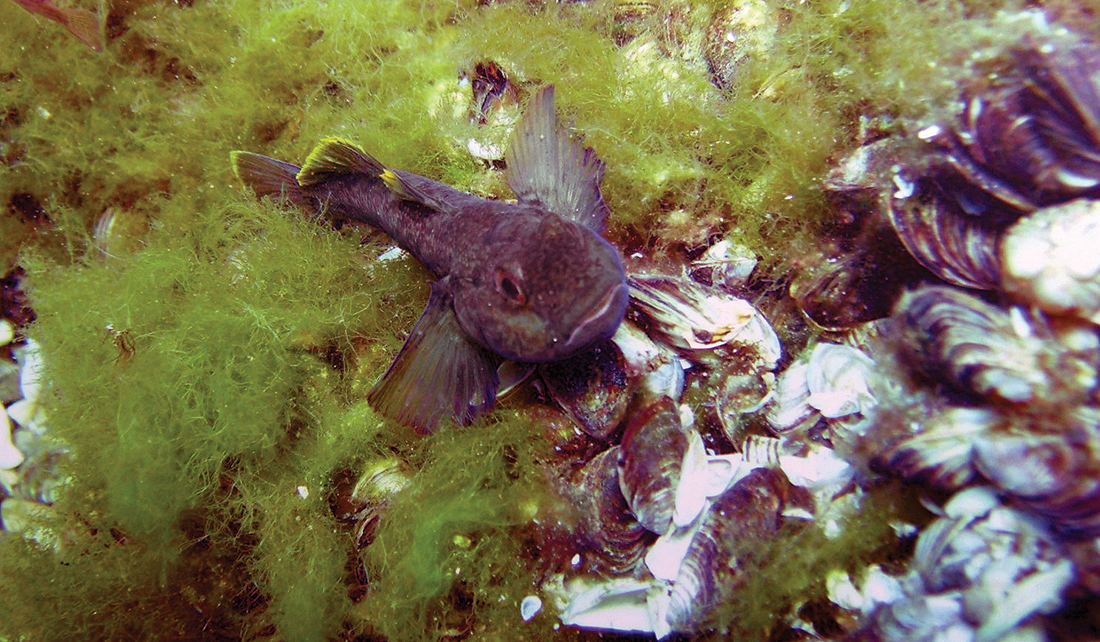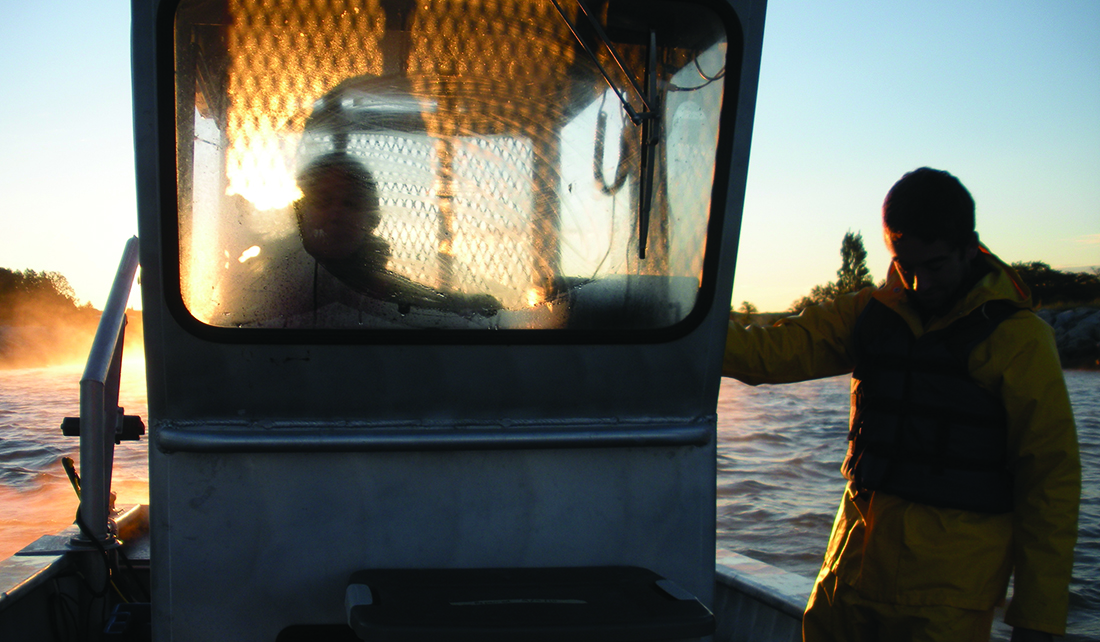
This story appears in Lake Michigan nearshore food web: Charting new waters, a new publication created by Illinois-Indiana Sea Grant and Wisconsin Sea Grant.
Round gobies have become big players in the Lake Michigan food web. A small but invasive fish, their success may be due to being masters of survival. More specifically, they make themselves at home in a variety of conditions with a variety of food options, settle in for the long haul, and protect their territory.
IISG Assistant Research Coordinator Carolyn Foley took part in a study to learn more about the round goby’s place in the food web. The research team sampled three sizes of gobies from many locations and in multiple seasons. They analyzed the goby diets using three techniques—stomach contents to learn what the fish are eating when caught, fatty acid signatures, which reveal what they have been consuming over several weeks, and stable isotopes, providing a picture of an even longer time frame.
They found location was the driving factor in terms of what the gobies ate and the fish tended to stay put over time. “It’s striking how they tend to stay in the same spot,” said Foley. “This makes sense for them because they are very territorial—they aggressively defend their home turf.”

University of Illinois graduate student Austin Happel and Carolyn Foley, Illinois-Indiana Sea Grant assistant research coodinator, head out to collect fish and invertebrate samples in the waters near Manistee County. Photo by Sarah Stein
Gobies are known to prefer hard, rocky areas and to eat zebra mussels, but the reality may be more complicated. “We caught more gobies over hard substrate, which makes sense, but we found them over soft substrate too,” said Foley. “And since the diet analysis—stomach contents, fatty acids, and isotopes—are conveying the same information no matter what the timescale, we think it means they are taking advantage of whatever food sources are nearby.”
That gobies have become major players in Lake Michigan and that they are survivors may have the potential of providing some stability to the food web. “Their adaptability suggests that they will likely persist for a long time,” said Foley. “And as part of the food web, they too are being eaten—smallmouth bass and birds are eating gobies and are growing.”
But this brings up a concern. As bottom dwellers, round gobies hang out where the contaminants are. As these fish become entrenched in the food web, scientists wonder whether contaminants are more likely to move up through the food web to birds, top predator fish, and eventually, people.
Illinois-Indiana Sea Grant is a part of University of Illinois Extension and Purdue University Extension.

